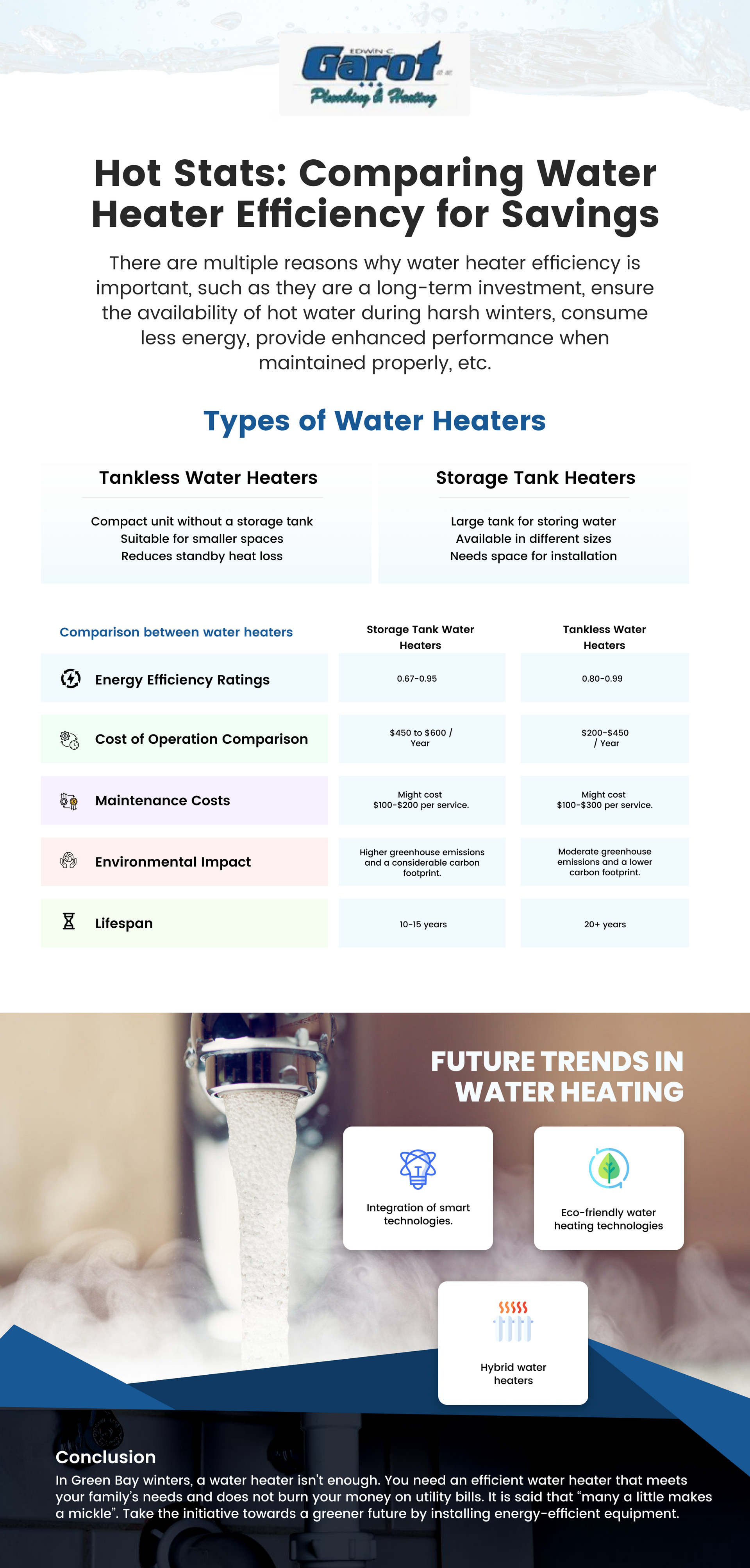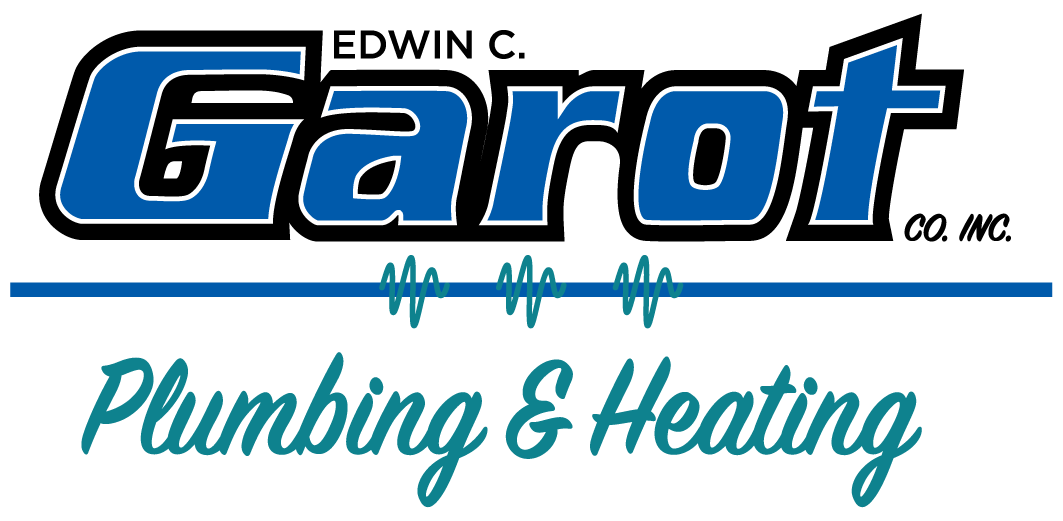Hot Stats: Comparing Water Heater Efficiency for Savings
This is a subtitle for your new post

Types of Water Heaters
Here is a comparison of different water heater types:
Tankless Water Heater
- It is a compact unit without a storage tank.
- It is suitable for smaller spaces.
- It reduces standby heat loss.
Storage Tank Water Heater
- It has a large tank for storing water.
- It is available in different sizes based on your needs.
- It needs space for installation, which isn’t a good option if you don’t have space.
Energy Efficiency Ratings
Storage Tank Water Heaters
Tankless Water Heaters
Cost of Operation Comparison
Storage Tank Water Heaters
Tankless Water Heaters
Environmental Impact
Lifespan and Maintenance Costs
Storage Tank Water Heater: They have a lifespan of 10-15 years, but regular maintenance, such as flushing the tank and clearing the sediment buildup, can ensure longevity.
Tankless water Heaters: Tankless water heaters have no components to clean and flush, and they last for 20+ years. They are known for their durability.
Maintenance requirements and associated costs:
Storage Tank Water Heaters: They require regular flushing and sediment cleaning. Calling a professional is the best advice, which might cost $100-$200 per service.
Tankless Water Heaters: Proper vent checks and potential parts replacement are required from time to time and might cost $100-$300 per service.
Future Trends in Water Heating
Integration of smart technologies allows remote monitoring, scheduling, and adjusting temperatures via mobile apps, a safe and energy-efficient alternative.
Hybrid water heaters are also making headlines as they come with dual-mode operation, so you can choose a preferred mode.
The focus is on water heater efficiency to reduce carbon footprint and harness the power of automation for additional savings.
Predictive maintenance can prevent inefficiencies and lengthen the lifespan of the equipment.
There is greater adoption of eco-friendly water heating technologies which align with sustainability goals.
Conclusion
In Green Bay winters, a water heater isn’t enough. You need an efficient water heater that meets your family’s needs and does not burn your money on utility bills. It is said that “many little things add up to big things”. Take the initiative towards a greener future by installing energy-efficient equipment.
Water heaters are an investment, and by investing in energy-efficient equipment, such as a tankless water heater, you can ensure hot water availability for your family without leaving a significant carbon footprint.
